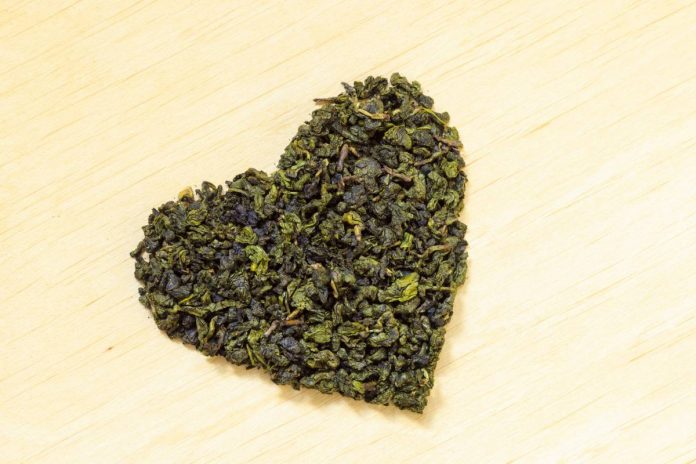
Apples, please step aside for a moment: a cup of tea a day could keep your doctor away and support heart and cardiovascular health as well. You should still keep eating apples, but when it comes to choosing beverages, your heart could benefit from making the world’s second most common drink your drink of choice more often.
What’s special about tea?
First of all, we are talking about Camillia sinensis, the plant that gives us black, green, oolong, and white teas. All of these teas come from the same plant; it’s the leaves that are harvested and how they are processed that make them different.
Read about 9 teas that help our health
Tea leaves contain large amounts of polyphenols, micronutrients that are found in plants. There are more than 8,000 different types of polyphenols, including catechins (the most prominent), flavanols, leucoanthocyanines, and phenolic acid. Polyphenols are antioxidants, which means they help protect the cells against damage from free radicals, oxidative stress, and related health problems, such as coronary heart disease and inflammation.
Tea and your heart
Numerous studies have shown that drinking tea can benefit your heart health in several ways. Research appearing in the European Journal of Preventive Cardiology, for example, reported that people who drink tea three or more times a week have improved cardiovascular health when compared with those who consumed fewer cups per week. More than 100,000 people participated in the study, and they were followed up for a median of 7.3 years.
The authors noted that the benefits were better for green tea drinkers than for black tea and for men rather than women. Those who made a habit of drinking tea were 20 percent less likely to develop heart disease and stroke and 22 percent less likely to die from heart disease or stroke. Experts say the cardiovascular benefits may be attributed to polyphenols, which can raise good cholesterol, reduce inflammation, widen blood vessels, and improve clotting.
Read about the heart of women’s health
The most recent research (2021) on this topic was an umbrella review of 23 systematic reviews. According to the authors “Consistently consuming 2 cups of unsweetened tea per day offers the right levels of flavonoids to potentially decrease CVD [cardiovascular] risk and its progression.”
Did you know that levels of good cholesterol (high-density lipoprotein, HDL) decreases naturally as we get older? Drinking tea may help with this decline. One study looked at how HDL levels changed over a six-year period among more than 80,000 people. Those who drank tea on a regular basis have a slower age-related decline in HDL than those who didn’t consume tea regularly. The decline in HDL translated into an 8 percent decrease in cardiovascular risk.
Which is better, black or green tea?
Both types of tea are rich in polyphenols, but it’s possible that the fermentation process for making black tea make reduces the effectiveness of polyphenols. That may explain the better cardiovascular benefits seen in people who drank green tea than black.
According to Dr. Guy L. Mintz, director of cardiovascular health and lipidology at Northwell Health’s Sandra Atlas Bass Heart Hospital in New York, this large study made it clear that “Tea, particularly green tea, is cardioprotective, and should be considered as another tool in the cardiac prevention toolbox.”
Bottom line
If you already enjoy tea on a regular basis, don’t stop! Your heart and cardiovascular system are benefiting from this habit. If tea hasn’t been on your radar, consider enjoying three or more cups per week to help lower your risk of cardiovascular problems.
[Editor's Note: Almost every afternoon and sometimes in the evening we enjoy a cup of tea from Bigelow Tea. They have hundreds of flavors and we enjoy black and green teas during the day but stick with herbal in the evening so the caffeine doesn't affect our sleep.]











